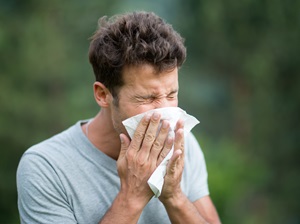Surviving Spring and Summer: A Guide to Managing Seasonal Allergies

Spring and summer bring warmer weather and blooming flowers, but they also bring seasonal allergies for many. In this post, we’ll explore the common triggers and symptoms of seasonal allergies during these seasons and provide tips on managing them effectively.
Recognizing Symptoms of Spring and Summer Allergies
Seasonal allergies, also known as hay fever or allergic rhinitis, are triggered by allergens that are present in the air during certain times of the year. Common allergens in the spring and summer include pollen from trees, grasses, and weeds. Symptoms of seasonal allergies can vary but often include:
- Sneezing
- Runny or stuffy nose
- Itchy eyes, nose, or throat
- Watery eyes
- Coughing
- Fatigue
Managing Spring and Summer Allergies
Managing seasonal allergies involves a combination of avoiding allergens and using medications to control symptoms. Here are some tips to help you manage your spring and summer allergies:
Monitor pollen counts: Check pollen forecasts and try to stay indoors when pollen levels are high.
Keep windows closed: Keep windows closed in your home and car to prevent pollen from entering.
Use air conditioning: Use air conditioning in your home and car to filter the air and reduce exposure to allergens.
Use allergen-proof bedding: Use allergen-proof covers on pillows, mattresses, and box springs to reduce exposure to dust mites.
Consider allergy medications: Over-the-counter and prescription allergy medications can help relieve symptoms. Antihistamines, decongestants, and nasal corticosteroids are commonly used to manage seasonal allergies.
When to Seek Professional Help
Consider seeing an allergist if your seasonal allergy symptoms are severe or not well-controlled with over-the-counter medications. An allergist can perform allergy testing to identify specific allergens that trigger your symptoms and recommend appropriate treatment options, such as allergy shots (immunotherapy) or prescription medications.
Embracing Spring and Summer with Allergy-Free Strategies
Spring and summer allergies can be challenging, but with the right strategies, you can manage your symptoms and enjoy the seasons. By recognizing the symptoms of seasonal allergies and avoiding allergens, you can reduce your exposure and minimize your symptoms. If you need help managing your seasonal allergies, don’t hesitate to seek professional help from Allergy, Asthma, and Immunology Medical Group by calling 805-658-9500 and scheduling an appointment.



